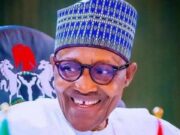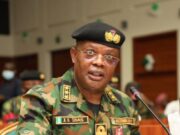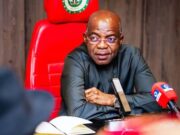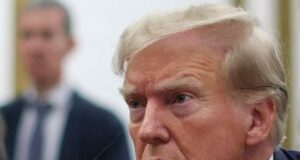South Korean lawmakers have impeached acting president Han Duck-soo on Friday, plunging the country deeper into political turmoil just two weeks after his predecessor, President Yoon Suk Yeol, was suspended over a controversial martial law declaration.
Han, a career bureaucrat who had been serving as prime minister, stepped in as acting president on December 14 following Yoon’s impeachment by parliament on charges of insurrection.
However, opposition lawmakers have now moved to strip Han of his duties, accusing him of failing to follow through with Yoon’s impeachment process and bring him to justice.
National Assembly Speaker Woo Won-shik confirmed the impeachment, stating, “Prime Minister Han Duck-soo’s impeachment motion has passed. Of the 192 lawmakers who voted, 192 voted in favor of impeachment.”
Lawmakers from the ruling People’s Power Party (PPP) protested loudly after Woo announced that only a simple majority was required for impeachment to pass, rather than the two-thirds majority needed to remove Yoon.
PPP lawmakers chanted angrily and demanded Woo’s resignation, but they did not participate in the vote.
Friday’s impeachment marked a historic moment, as it was not only the second impeachment of a head of state in just two weeks but also South Korea’s first-ever impeachment of an acting president.
PPP leader Kweon Seong-dong insisted that Han must continue leading the country, despite the opposition’s victory.
However, Han acknowledged the parliament’s decision in a statement, saying he would respect it and wait for the Constitutional Court’s ruling on whether the impeachment would stand.
Finance Minister Choi Sang-mok, who has now assumed the roles of both acting president and prime minister, pledged to work towards minimizing the government’s instability during this crisis.
“Minimizing governmental turmoil is of utmost importance at this moment,” Choi said, emphasizing the government’s commitment to overcoming the current upheaval.
As the political crisis deepens, South Korea’s currency, the won, hit a 16-year low against the US dollar, and the KOSPI stock index fell by 1.02 percent on Friday.
The dispute over Han’s impeachment largely centered on his refusal to appoint additional judges to the Constitutional Court, which is set to decide whether to uphold the impeachment of both Yoon and Han.
With the court currently short of three judges, the opposition criticized Han for blocking the appointment of new judges, stalling the judicial process.
Democratic Party lawmaker Jo Seoung-lae condemned Han’s actions, calling them a “direct challenge to the Constitution and the law” and accusing him of intentionally obstructing the special investigation into the martial law declaration.
The opposition’s impeachment motion also cited Han’s failure to fulfill his duties and serve the public.
In his defense, Han argued that he was waiting for a compromise between the ruling and opposition parties on the appointments of new judges.
He emphasized that the constitution and laws required significant consensus between the parties before such decisions could be made.
Meanwhile, the Constitutional Court held a preliminary hearing on the validity of Yoon’s impeachment, with the suspended president’s legal team attending.
Police have also launched an investigation into the martial law declaration, raiding a presidential safe house and collecting footage from nearby security cameras.

















